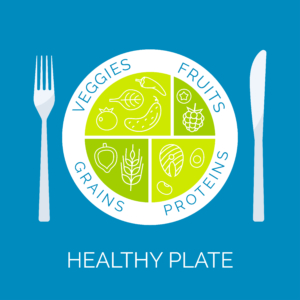
In the dietitian nutrition world, we recognize that all macro and micronutrients are important for health. Yet protein tends to steal the spotlight, demanding attention in the media, in research, and in clinical nutrition counseling.
It’s easy to understand protein’s popularity given every cell in our body needs it for structure and function. Body proteins are in a constant state of breaking down and rebuilding. Keeping our protein supplies, amino acids, well stocked is critical, otherwise the body will breakdown faster than it can rebuild, which comes with many negative health consequences.
For healthy individuals, meeting protein and amino acid needs is easy to accomplish. In fact, in the US average protein consumption is well above the recommended amount of 0.8g/kg/day. But for those battling acute and chronic diseases such as end stage renal disease (ESRD), it becomes much more challenging to meet protein needs. This is in part due to increased catabolism, or more rapid breakdown of body proteins, which means more protein (as much as 1.5g/kg/day) needs to be consumed. At the same time protein needs are increasing, these illnesses and diseases can also negatively impact appetite, absorption, and use of protein in the body.
Many patients on dialysis experience this imbalance in protein breakdown and synthesis which leads to as many as 54% suffering from malnutrition and protein-energy wasting. Luckily, to combat the consequences of inadequate protein intake (increased hospitalizations, weakened immune function, frailty, and poor wound healing), renal dietitians have a treasure trove of protein options available.
For oral supplementation, the options have greatly increased. The go-to option, protein bars like Zone or Pure Protein, offer an excellent protein boost while also providing other kidney friendly nutrients like fiber. Also making their way onto the market are more kidney conscious products like VidaFuel, an RD formulated protein drink low in potassium and phosphorous.
One challenge with oral intake is that patients often fall off the wagon over time due to low appetite, GI upset, dental issues, or the simple monotony of eating protein supplements day in and day out. Add to that gut dysbiosis caused by chronic kidney disease which leads to malabsorption and underutilization of dietary protein, having another option in the RD’s back pocket benefits everyone.
This is where infusion therapies, intradialytic parenteral nutrition (IDPN) and intraperitoneal nutrition (IPN), fit into renal nutrition practice. By bypassing the gut, amino acids in IDPN and IPN are guaranteed to be delivered into the body to be used for protein synthesis. Patient Care America’s individualized amino acid solutions includes a healthy dose of leucine, the amino acid identified as the most important for lean muscle mass preservation and growth.
Additionally, because they are directly infused into the bloodstream, the amino acids in IDPN and IPN will not undergo microbial fermentation in the GI tract. When orally consumed proteins are subject to microbial fermentation, they contribute to gut dysbiosis and uremic toxin production.
With regular use of all the protein tools at the RD’s disposal – nutrition counseling, oral supplementation, and protein infusion therapies when appropriate – protein-energy malnutrition can be more effectively managed. And perhaps then we can spend more time talking about all the other nutrients eager for the spotlight.
References
Carrero, J. J., Thomas, F., Nagy, K., Arogundade, F., Avesani, C. M., Chan, M., … & Guebre-Egziabher, F. (2018). Global prevalence of protein-energy wasting in kidney disease: a meta-analysis of contemporary observational studies from the international society of renal nutrition and metabolism. Journal of renal nutrition, 28(6), 380-392.
Komar, B., Schwingshackl, L., & Hoffmann, G. (2015). Effects of leucine-rich protein supplements on anthropometric parameter and muscle strength in the elderly: a systematic review and meta-analysis. The journal of nutrition, health & aging, 19(4), 437-446.
Snelson, M., Biruete, A., McFarlane, C., & Campbell, K. (2020). A Renal Clinician’s Guide to the Gut Microbiota. Journal of Renal Nutrition.
